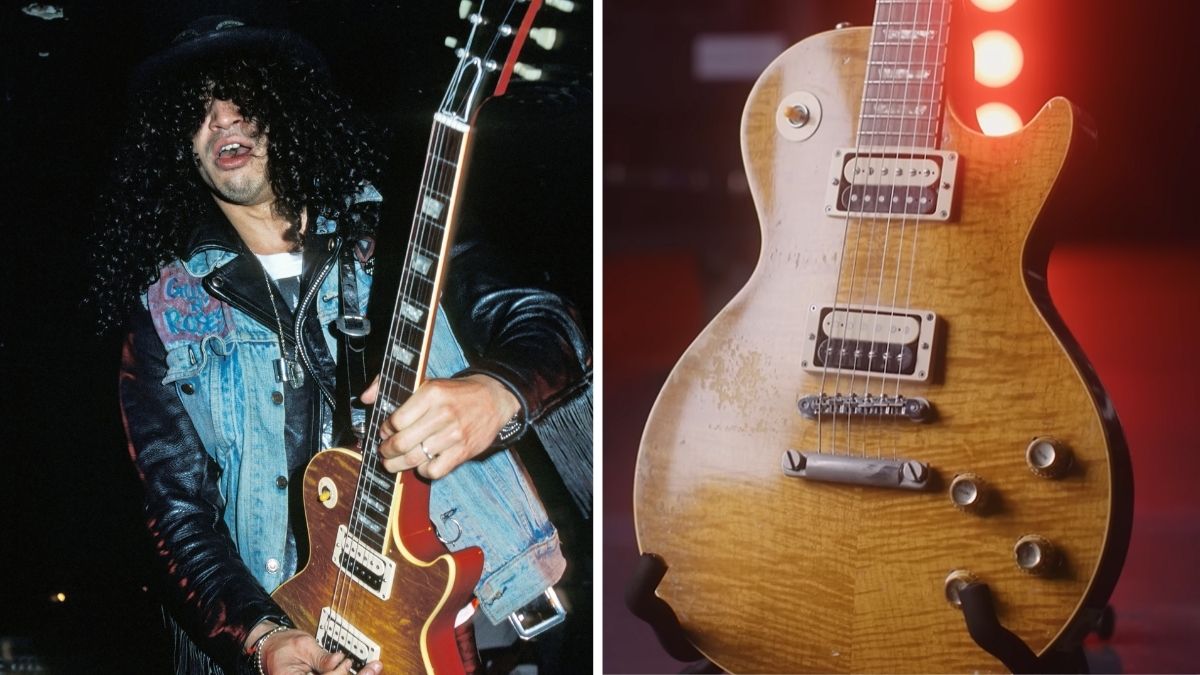What the Sophie Lloyd and Machine Gun Kelly non-scandal reminds us about how society views women who play guitar
It took nothing more than a Instagram comment to send the rumor mill into overdrive – and the baseless controversy is emblematic of a bigger problem facing the guitar world

All the latest guitar news, interviews, lessons, reviews, deals and more, direct to your inbox!
You are now subscribed
Your newsletter sign-up was successful
British guitar player Sophie Lloyd recently became the target of a baseless online rumor accusing her of having an affair with Machine Gun Kelly (MGK), whose relationship with actress Megan Fox is apparently on the rocks.
The rumor took flight after a fan commented on an Instagram post by Fox before she deleted her account. “He probably got with Sophie,” the fan reportedly said.
And that’s it. That’s all it took. One comment, then the mass gorging by media and consumers began.
If morbid curiosity has you wondering if Lloyd, who joined MGK’s band last year as his touring guitarist, was tapping anything other than her fretboard, her spokespeople assured she is not.
“Sophie Lloyd is a professional, accomplished musician who has been needlessly dragged into the media based off of meritless accusations made by social media. Any suggestion that she has ever acted in an unprofessional manner or stepped out of her relationship are untrue. It’s disrespectful to her as a female artist and poor journalism and social commentary to be reporting anything else,” said her team.
Fox also denied the accusation, who said via her reinstated Instagram account that, “There has been no third-party interference in this relationship of any kind.”
But this piece is hardly about MGK or Fox. It’s about the unfortunate circumstances surrounding Lloyd thanks to unevolved trolls instigating false information, and the clickbait hungry media perpetuating it.
All the latest guitar news, interviews, lessons, reviews, deals and more, direct to your inbox!
Which begs the question: why Lloyd? If she were unattractive, would pitiful fans project their fantasies onto her in the form of rumors? If roles were reversed, would a guy be held to the same standards?
Perhaps, but highly unlikely. It’s not sensational enough.
Now let’s take Lloyd out of the equation and focus on the actual problem.
We’ve come a long way in educating society on gender parity and on the stigmas surrounding women who play guitar. But every time we are objectified, whether consciously or not, we regress a thousand lifetimes, and our musicianship is grossly undermined.
The false allegation involving Lloyd is a categorical display of idiocy, but let’s explore how other less obvious, subtle acts of exclusion toward women who play guitar can equally present a pernicious threat to our evolution as a society. Shall we?
When you call yourself (or a woman who plays guitar) a “female guitarist”
Despite being a woman who plays guitar, I’ve never felt compelled to label myself as a “female guitarist.”
Why? Because while arguably 99.9% of people are using it in a completely inoffensive way, I think it deflects from musicianship and calls attention to the fact that I am a woman instead of a guitar player.
If that tickles your fancy, by all means, call yourself whatever you want. And yes, I get it. Society has a need to categorize and label and segment. But to what end? And is it to our advantage, or demise?
In the case of Lloyd’s statement shutting down the cheating allegations, indicating that the rumor was “disrespectful to her as a female artist,” I believe her PR people found it necessary to mention that she was a female precisely to shed light on the fact that she was targeted because she was a woman. So it’s all about context.
But generally speaking, though, I see no need to call it out.

Reason this with me: last time I checked, we’re born with the same amount of limbs and fingers, and gender has no direct impact on our ability to play guitar any differently. So why create a distinction that potentially generates divide?
I take great pride in being a woman, I have a track record for supporting women in the industry, and am grateful for the pioneers who paved the way before us when women who played guitar were virtually non-existent.
But I don’t understand why people say “female” guitarist to refer to a woman who plays guitar, and simply “guitarist” when referring to a man. Should we start calling the guys male guitarists? Um, please no.
Here’s a novel idea: why can’t we all just call ourselves guitarists?
Sit with that for a while.
When you automatically assume we are singer-songwriters

The usual follow-up question when people learn I play guitar is, “Do you sing?”
Many assume that because I am a woman who plays guitar, I am also a singer-songwriter. However, I have never heard anyone automatically follow-up with the same question with my guitar-playing guy friends (I’ve worked with hundreds of them for more than a decade – I would know).
I may be the shredder type. I may be the jazz cat type. I may be the classical guitar type. I may be all of the above type. Just because I play guitar and am a woman, it does not mean I am the Taylor Swift type
I may be the shredder type. I may be the jazz cat type. I may be the classical guitar type. I may be all of the above type. Just because I play guitar and am a woman, it does not mean I am the Taylor Swift type.
And just because I don’t sing, it doesn’t diminish my abilities as a guitarist (sorry I can’t live up to your campfire expectations).
I mentioned earlier subtle acts of exclusion, meaning your perception of who we should be as guitarists may be based on unconscious bias – with the purest of motives, but potentially (and unintentionally) detrimental.
The singer-songwriter scenario is a good example, because your experiences or mainstream media have potentially shaped your perception to make you believe we only sing and strum.
But instead of automatically asking us if we sing, a more educated way of asking the question would be: what style of music do you play?
When comments are disguised and patronized

I really shouldn’t have to explain why remarks like, “You’re good for a girl,” are distasteful. And we get them all the time. This is just one of many examples.
The point is not for you to be paranoid or to walk on eggshells, but to be equipped with the self-awareness to know if you are inadvertently being condescending, or if you are on the verge of igniting a global scandal while dragging unsuspecting victims along with you (e.g., Lloyd).
So before you belt out mindless comments or questions, ask yourself, “Is my remark thoughtful in nature? Is it an educated question? How will my comment be perceived?”
And instead of focusing on anything you shouldn’t say, think about all the wonderful things you can say. Things like, “Wow, you’re a great guitar player! You’re incredibly talented! You’re a stellar musician! Your playing is top-notch!”
Because at the end of the day, what you say about others and how you perceive them, says more about you than it does about them. Think about it.
A classically trained guitarist with a soft spot for metal, Pauline France is synonymous with all things writing, guitar and public relations – she is Guitar & PR. Her career in M.I. spans more than 15 years, working in Fender Musical Instruments Corporation’s communications departments, as well as being a Fender Play Instructor and on-camera personality for Fender Premium Audio.


